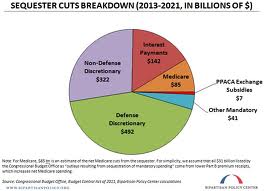Hospitals should be one of the safest places a person could possibly be, yet each year hundreds of thousands of patients are injured, experience hospital-acquired infections, and even die because of medical errors. But how do hospitals change what is clearly a systemic problem? As with many problems, the solutions need to start at the top. By focusing on strategic, administrative transformation, hospitals can address common patient health problems. These are solutions that address the underlying causes of hospital-based risks, and that?s the first step to long-term success.
Identify Vulnerable Populations
One of the easiest ways to reduce the number of hospital errors and injuries is to recognize that these issues aren?t evenly distributed across all patients. While medically-literate patients undergoing routine procedures rarely experience major complications, other patients, including those who speak little or no English, who have low levels of medical literacy, or who have multiple chronic conditions, are more likely to experience complications. By identifying high-risk groups in your treatment community, your hospital can provide increased monitoring for those individuals and prevent errors by creating system redundancies similar to current time out protocols, providing language and education supports, and using biometric data to monitor patients? status. Additionally, standardizing various procedures can minimize the likelihood of errors when preparing medications or performing procedures.
Battle Provider Burnout
One of the most common causes of medical errors is provider burnout, which tends to happen when hospitals are understaffed and doctors and nurses are expected to work too many hours ? and that burnout can result in medical malpractice. Overworked and going without rest, doctors don?t communicate with each other, fail to keep comprehensive records, and compromise hygiene standards during procedures. Some even develop chemical dependencies in an attempt to stay awake and deal with stress. Obviously the easiest way to fight provider burnout is by increasing hiring, but that?s not always possible in certain specialties with a shortage of practitioners. In those circumstances, then, it?s important to stagger schedules wisely to give providers time to rest, increase oversight of procedures, and encourage interdepartmental collaboration. When doctors work together across specialties, they become more comfortable communicating, develop a shared shorthand, and are able to step in for each other when there?s a staffing shortage.
Invest In Tech
Hospitals love to promote their new technology, but only when those shiny new tools are patient-facing, like surgical robots and advanced imaging programs. Safety tools, on the other hand, tend to elicit less public excitement and therefore a reduced degree of administrative buy-in when they should be a top priority. In fact, investing in the right technology can minimize cases of hospital negligence and take some of the strain off of overextended providers. One of the most effective pieces of technology instituted in hospitals across the nations is RFID tracking for sponges and surgical instruments. When surgical instruments and sponges are left behind in the body cavity, they can cause serious infections, postoperative pain, and long-term complications, but when you?re handling dozens or even hundreds of different items in the course of a procedure, it can be hard to keep track of them all. This is particularly true in emergent procedures when there?s a lot of blood and when surgeons and nurses have less opportunity to keep count. RFID tracking allows doctors to scan in each item and ensures that every piece of equipment present at the start of surgery is accounted for at the end.
Make It Standard
Finally, and perhaps most importantly from an administrative perspective, focusing on procedural and material standardization as practiced in manufacturing and other industry can simplify hospital management and protect patients. That means sticking with the same drug manufacturers whenever possible so that staff can recognize medications, building relationships with key suppliers ? which can yield discounts, and minimizing machine maintenance issues. Though personalization is often thought of as central to healthcare, patients are safer when things are done the same way every time and, when it comes down to it, patients want doctors with an established track record. They want consistency and treatment that?s proven to work. Hospitals will always be risky environments ? the people in them are uniquely vulnerable ? but that doesn?t mean we shouldn?t take strategic steps to make them safer. By providing doctors and nurses with the tools they need to provide safe, efficient care, administrators can demonstrate the degree to which we value their work and care about our patients. And unlike becoming a doctor, it doesn?t take decades of education to improve healthcare, just listening to doctors and patients and simplifying a complex system wherever possible. A healthcare revolution starts with the smallest steps.









